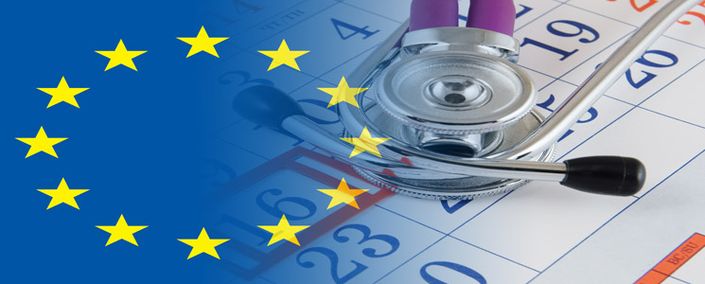Elaine Eisenbeisz
Owner, Omega Statistics
Who will Benefit
- Study Investigators
- Data managers
- Data processors
- Statisticians
- Site Personnel
- Clinical Research Associates
- Clinical Project Managers/Leaders
- Study Sponsors
- Professionals in pharmaceutical, medical device, clinical and biotechnology research who oversee or work with data collection and management
- Staff in the above fields who work with data collection/management and require training in CDM.
- Compliance auditors and regulatory professionals who require a knowledge of CDM in assessment of study protocols and reports
Agenda
DAY 01(8:30 AM - 4:30 PM)
8:30 - 8:59 Registration Meet & Greet.
9:00 - 10:30 Introductions: Seminar objectives review, expectations and scope.
Session 1: CDM: The Reasons and The Requirements
- GIGO = Garbage In, Garbage Out. Why we need good practices in data management
- Presentation and overview of FDA GCP Guidelines on data management
- NIH Policy (SOP 15, 17, 19)
- 21 CFR Parts 11, 312.62, 812.140,
10:30 – 10:45 Break
10:45-12:00 Session 2: Elements in Developing a Data Management Plan
- Choosing a vendor and outsourcing
- Data privacy and protection of subject data
- Quality Assurance and Quality Control
- Monitoring and auditing of data
- Handling Errors and Corrections
- Storage and Transfer of Data
12:00-1:00 Lunch
1:00-2:30 Session 3: Study Set-Up
- Essential documents
- Prior to Study Commencement
- During Conduct of the Trial
- After Completion/Termination of the Trial
2:30 – 2: 45 Break
2:45-4:30 Session 4: Study Set-Up (continued)
- CRF design and development (paper/e-CRF)
- Database build and testing
- Edit Checks preparation and testing
DAY 02(8:30 AM - 4:30 PM)
9:00 -10:30 Session 1: Study Conduct
- Data Entry
- External Data integration and reconciliation
- Discrepancies, errors, corrections
- Data Cleaning (preparation) and Coding
10:30 – 10:45 Break
10:45-12:00 Session 2: Study Conduct (cont’d)
- (MedDRA and WHODDE dictionaires)
- Severe adverse events (SAE) status reporting
- Data Review and Quality Control
- Data Transfer procedures
12:00-1:00 Lunch
1:00-2:30 Session 3: Study Closeout
- SAE Reconciliation
- Quality Control
- Database Lock
- Electronic Archival
- Database Transfer
- Enhancing Reproducibility
2:30 – 2: 45 Break
2:45-4:30 Session 4: Monitoring Visits
- What to expect during a monitoring visit
- Elements for Establishing a Corrective Action Plan
- Question and Answer Session
Learning Objectives:
- Regulatory guidelines for Clinical Data Management
- Best practices for data collection
- Responsibilities of personnel
- Case report form criteria
- Maintaining confidentiality of data
- Data storage and transferability
- Data preparation and quality assurance for accuracy
- Data monitoring plan criteria
- Data systems validation
- Adverse event reporting and coding criteria
- What to expect on a monitoring visit
- Troubleshooting and resolution of deviations from plan
Course Description
Clinical data management (CDM) is paramount for a successful research. After all, Garbage In, Garbage Out (GIGO).
CDM involves all aspects of collecting, processing, and interpreting information. There are many types of computer applications and database systems to support data collection and management. However, there are elements of CDM that apply across the board.
Review and approval of drugs or devices by regulatory agencies requires the assumption that the data presented are valid and reliable. Integrity of the data is paramount to ensure confidence in the results and conclusions you will make.
This seminar is based on FDA E6 GCP Guidelines which are the basis of effective data quality management. Even if your research is not FDA regulated, the information you learn in this course will help to ensure a robust data collection and management plan.
The information conveyed in this course will also assist investigators in setting up processes for smoother data monitoring and auditing.
Examples of CRF’s and required documentation will be presented. Data collection and preparation techniques will also be demonstrated. Additionally, this workshop will provide you with the knowledge and tools needed to assure a CDM plan that holds up when the inevitable deviations from protocol occur.
Disclaimer: This seminar is not endorsed by, directly affiliated with, maintained, authorized, or sponsored by the Society for Clinical Data Management or any other clinical research society. All products, processes, and company names are the registered trademarks of their original owners. The use of any trade name or trademark is for identification and reference purposes only and does not imply any association with the trademark holder of their brand.

Elaine Eisenbeisz
Elaine Eisenbeisz is a private practice statistician and owner of Omega Statistics, a statistical consulting firm based in Southern California. Elaine has over 30 years of experience in creating data and information solutions for industries ranging from governmental agencies and corporations, to start-up companies and individual researchers.
Elaine’s love of numbers began in elementary school where she placed in regional and statewide mathematics competitions. She attended University of California, Riverside, as a National Science Foundation scholar, where she earned a B.S. in Statistics with a minor in Quantitative Management, Accounting. Elaine received her Master’s Certification in Applied Statistcs from Texas A&M, and is currently finishing her graduate studies at Rochester Institute of Technology.


